Model Thinker_1.1 - Qualitative Model Analysis
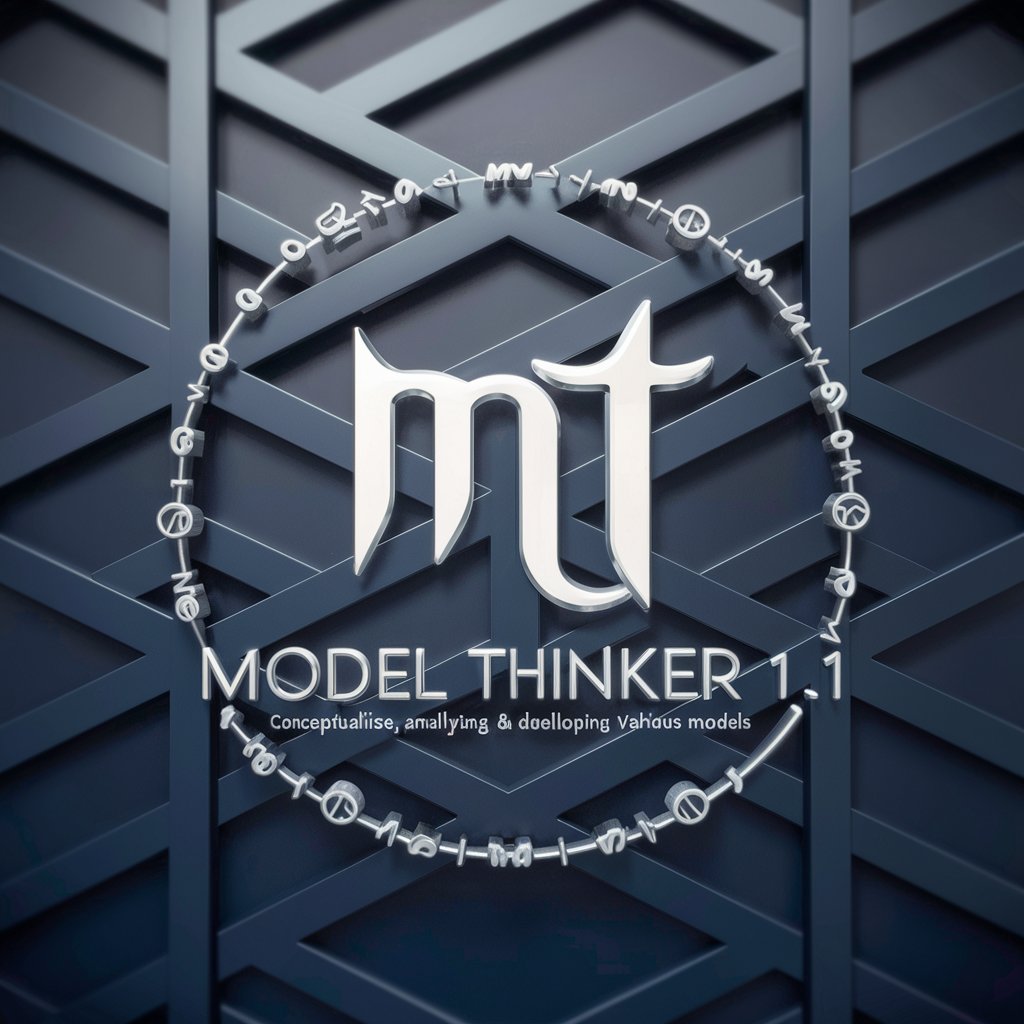
Welcome! Let's think deeply about your models.
Rethinking Concepts with AI
Analyze the mental models used in strategic decision-making and their impact on outcomes.
Explain the key components of a successful business model and how they interact.
Discuss the role of mathematical models in predicting economic trends.
Evaluate the effectiveness of conceptual models in understanding human behavior.
Get Embed Code
Introduction to Model Thinker_1.1
Model Thinker_1.1 is designed to assist in conceptualizing, analyzing, and developing various models across disciplines such as mathematics, statistics, business, and conceptual modeling. Its core functionality is to break down complex concepts into understandable components, offering insights for improvement and generating fresh perspectives on existing models. For instance, in a scenario where a business needs to refine its market segmentation model, Model Thinker_1.1 could help by suggesting ways to integrate behavioral data to enhance customer profiles, thereby improving targeted marketing strategies. Powered by ChatGPT-4o。

Main Functions of Model Thinker_1.1
Conceptual Analysis
Example
For a mathematical model predicting stock prices, Model Thinker_1.1 could assist by analyzing the assumptions about market behaviors and suggesting alternative variables that might affect prices, such as geopolitical events or changes in regulatory frameworks.
Scenario
Used by financial analysts to refine predictive models, ensuring they consider broader and possibly overlooked influencing factors.
Integration Suggestions
Example
In a business model focusing on customer retention, the GPT could propose integrating customer feedback loops into the service or product development stages to enhance responsiveness and adaptability to customer needs.
Scenario
Employed by startups and established businesses aiming to increase customer satisfaction and retention through continuous improvement.
Perspective Generation
Example
When a team is stuck on a single approach to solving a logistical problem, Model Thinker_1.1 might suggest a multi-disciplinary review session to draw on insights from fields like behavioral science or systems engineering, potentially leading to innovative solutions.
Scenario
Utilized in complex project environments where traditional problem-solving methods are insufficient.
Ideal Users of Model Thinker_1.1
Academics and Researchers
Ideal for those involved in theoretical or applied research, needing to explore new theoretical frameworks or enhance existing models with cross-disciplinary knowledge.
Business Analysts and Strategists
Beneficial for professionals who develop business strategies or operational models, requiring deep dives into market dynamics and integration of various data sources.
Product Managers and Designers
Useful for those in product management and design, seeking to understand customer behavior patterns and integrate this understanding into product development.

How to Use Model Thinker_1.1
Begin Your Journey
Visit yeschat.ai for a free trial without login, also no need for ChatGPT Plus.
Understand the Functionality
Familiarize yourself with Model Thinker_1.1's capabilities to analyze, develop, and conceptualize various models, such as business or conceptual models.
Clarify Your Objectives
Clearly define your objectives and the type of model you want to discuss or improve to ensure the guidance you receive is targeted and relevant.
Engage with the Model
Use specific questions or descriptions of your model to engage with Model Thinker_1.1, enabling it to provide detailed analysis and suggestions.
Apply Insights
Apply the insights and suggestions provided to enhance your model, using the tool’s ability to generate new perspectives and improve understanding.
Try other advanced and practical GPTs
Model Architect
Transforming Ideas into Detailed Models with AI

Model Master
Craft Your Vision with AI
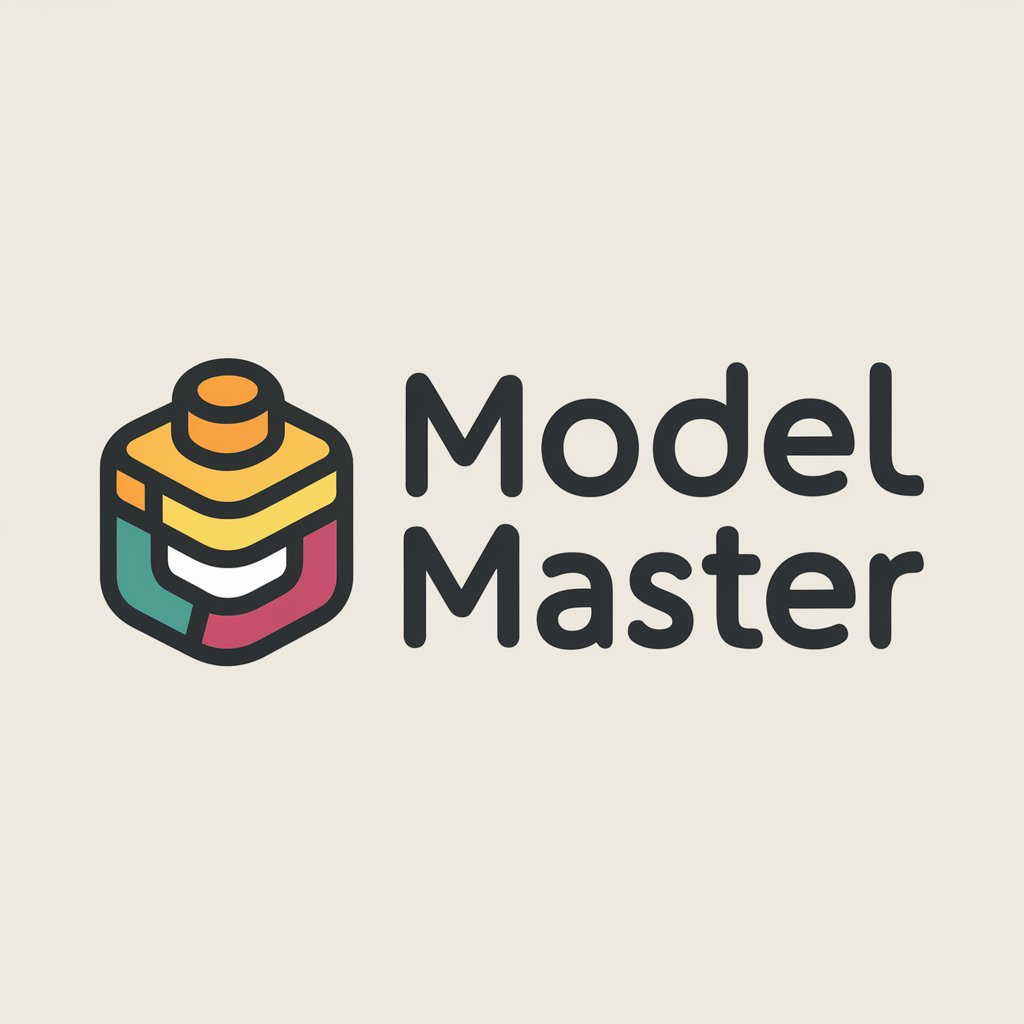
Model Intuition
Empowering Analytics with AI

Game Assistant
Empower your gameplay with AI

Game Gao
Master ARPGs with AI-powered Insights

Game Guide
Enhance Your RPG Experience with AI
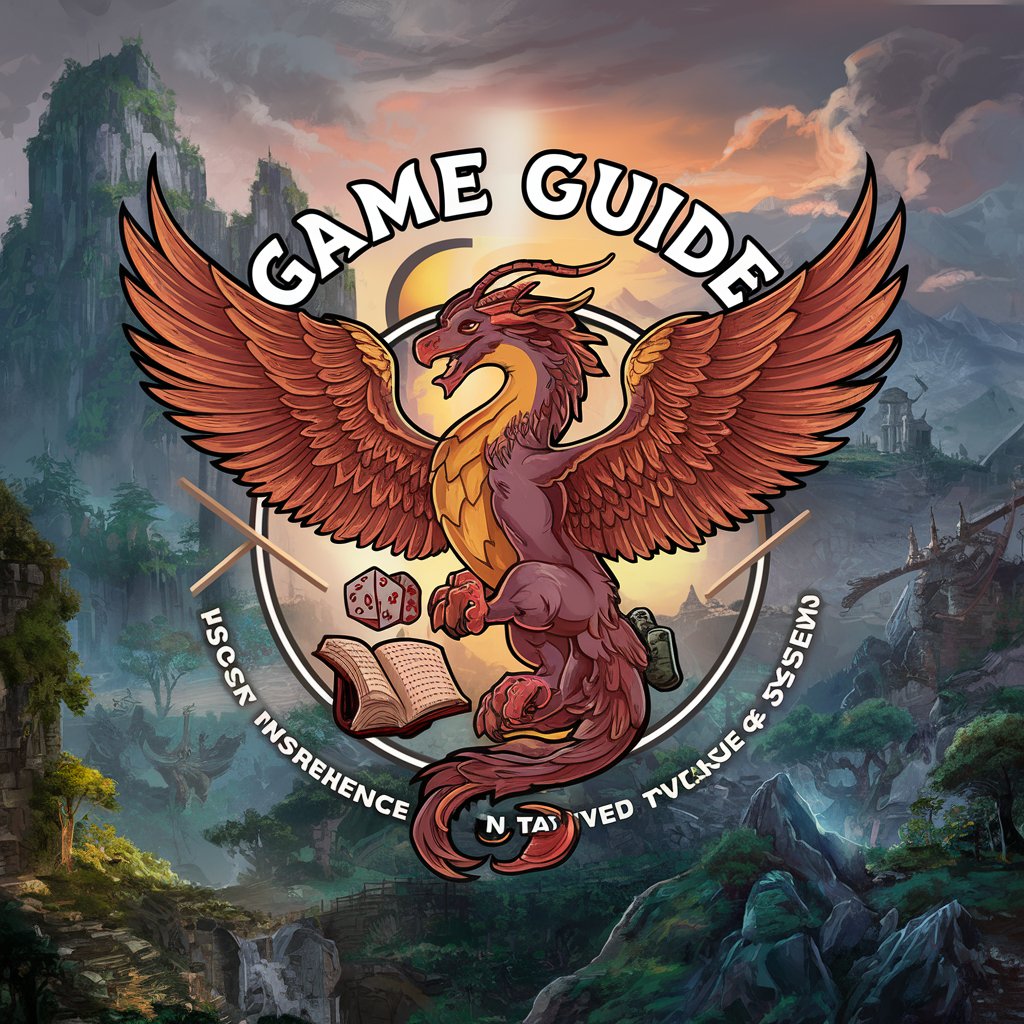
Pricing Model
Optimize banking pricing with AI

Meta Model
Model Complex Systems with AI

3D Printer Model Finder
Find Your Next 3D Print Easily
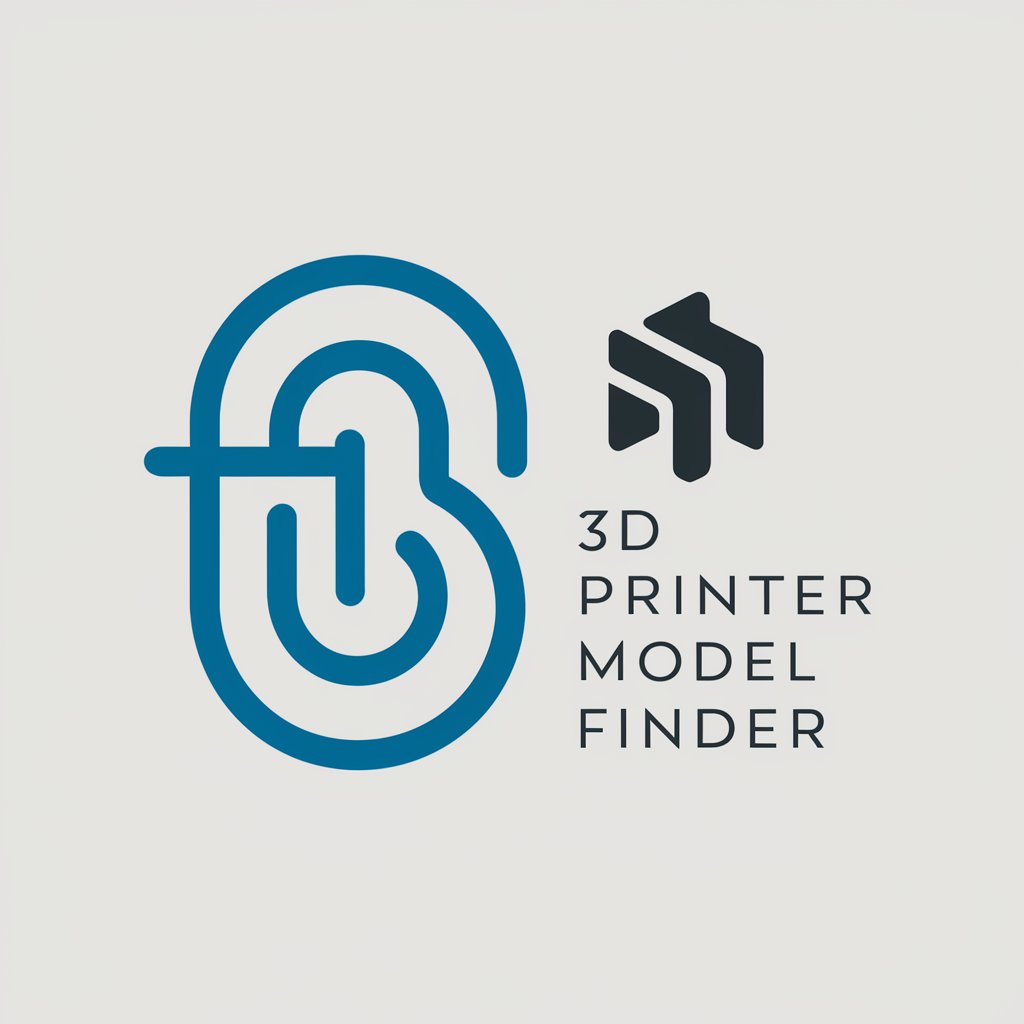
Financial Mathematics Model Solver
AI-powered precision in financial mathematics

SysML v2 Model Creator
AI-powered SysML v2 Modeling Simplified
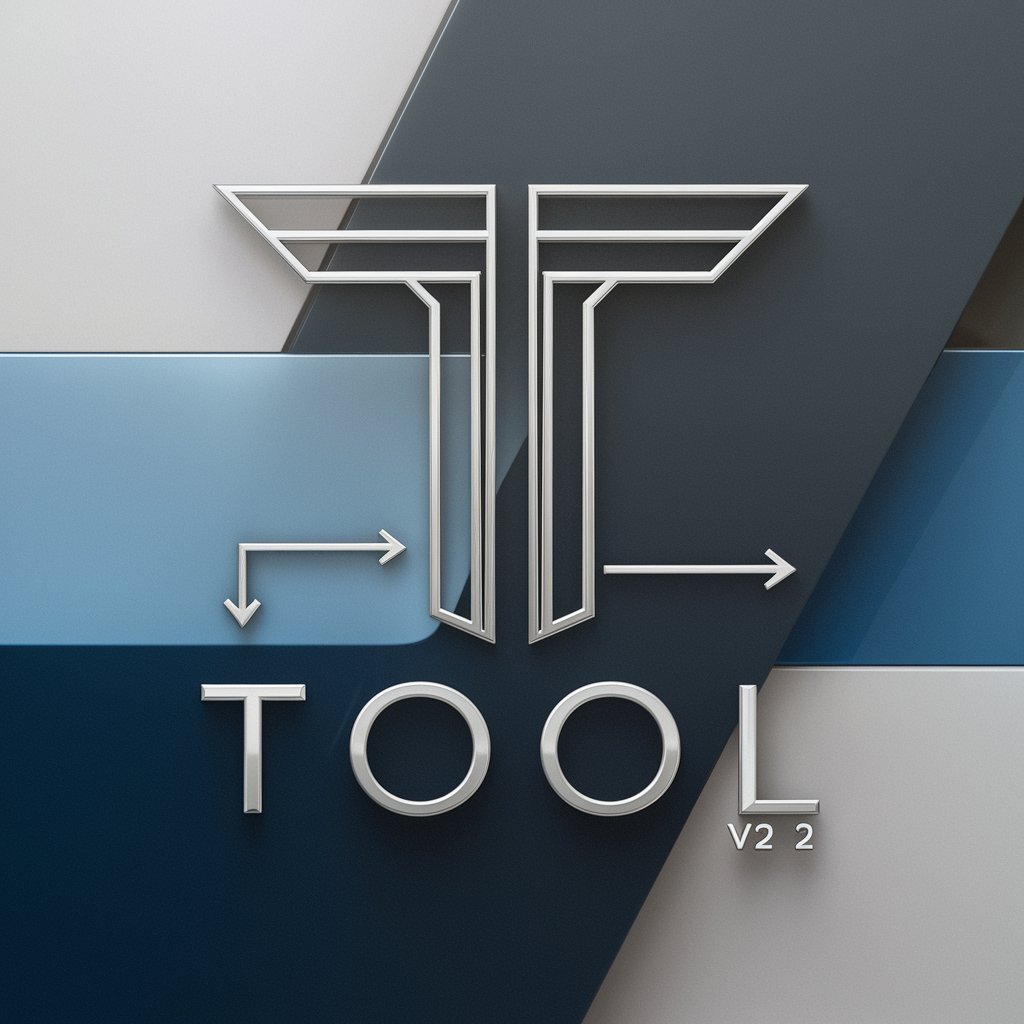
He Zhang
Revolutionizing Software with AI

Frequently Asked Questions About Model Thinker_1.1
What types of models can Model Thinker_1.1 help with?
Model Thinker_1.1 is designed to assist with a variety of models including mathematical, statistical, business, and conceptual models, focusing on qualitative analysis and conceptual development rather than numerical calculations.
How does Model Thinker_1.1 differ from other analytical tools?
Unlike tools focused on quantitative data and specific calculations, Model Thinker_1.1 specializes in conceptual understanding and qualitative analysis, providing deep insights into the structure and improvement of models.
Can Model Thinker_1.1 help with model validation?
Yes, while it focuses on conceptual analysis, it can offer insights into the consistency and applicability of various modeling approaches, aiding in the validation process from a qualitative perspective.
Is prior experience in modeling required to use Model Thinker_1.1 effectively?
While prior experience can be beneficial, Model Thinker_1.1 is designed to be accessible even to those new to modeling, providing clear, analytical insights to enhance understanding.
How can I make the best use of Model Thinker_1.1?
To make the most of Model Thinker_1.1, come prepared with specific questions or a clear description of the model you are working on. This focus allows the tool to provide the most relevant and useful insights.
